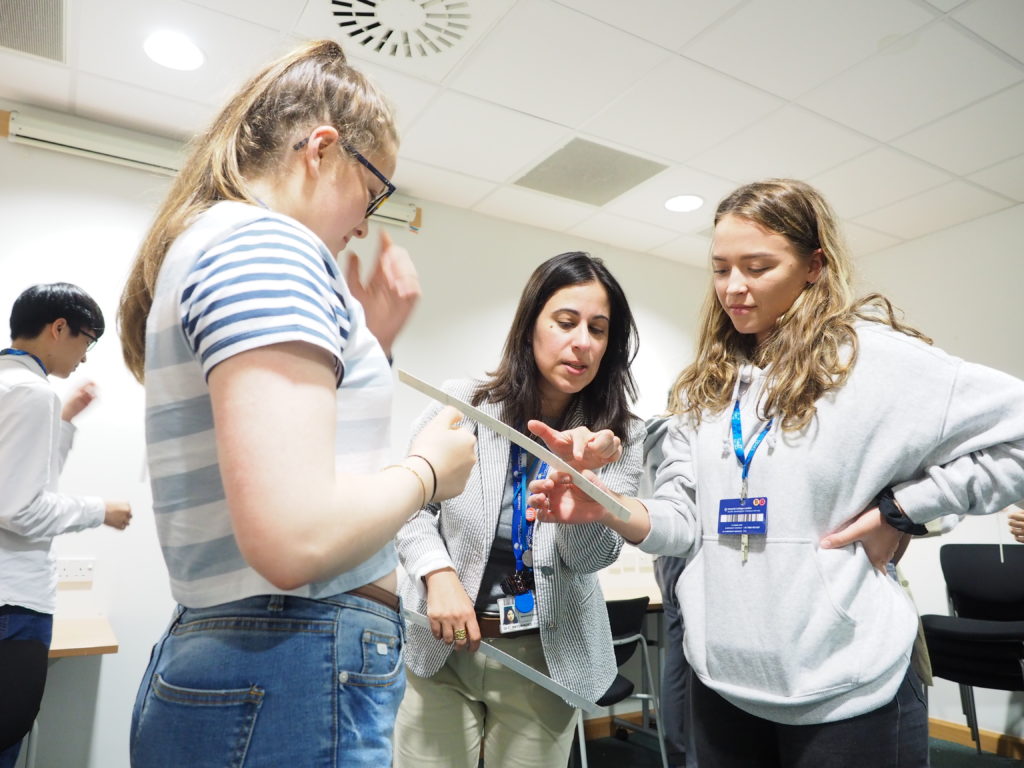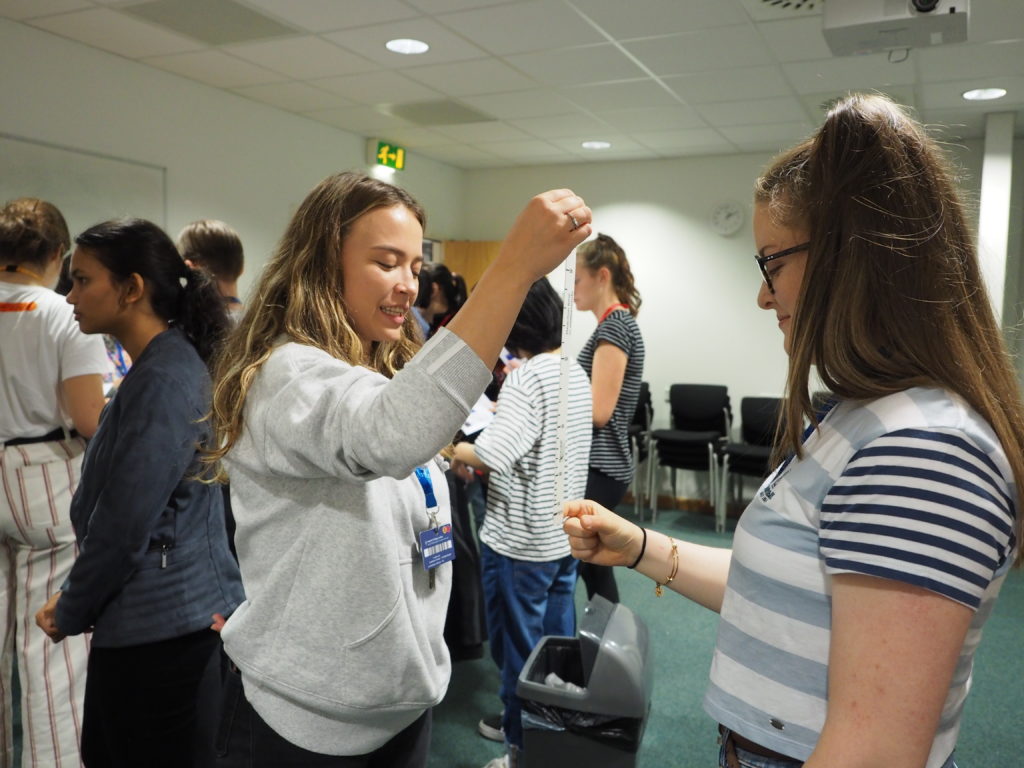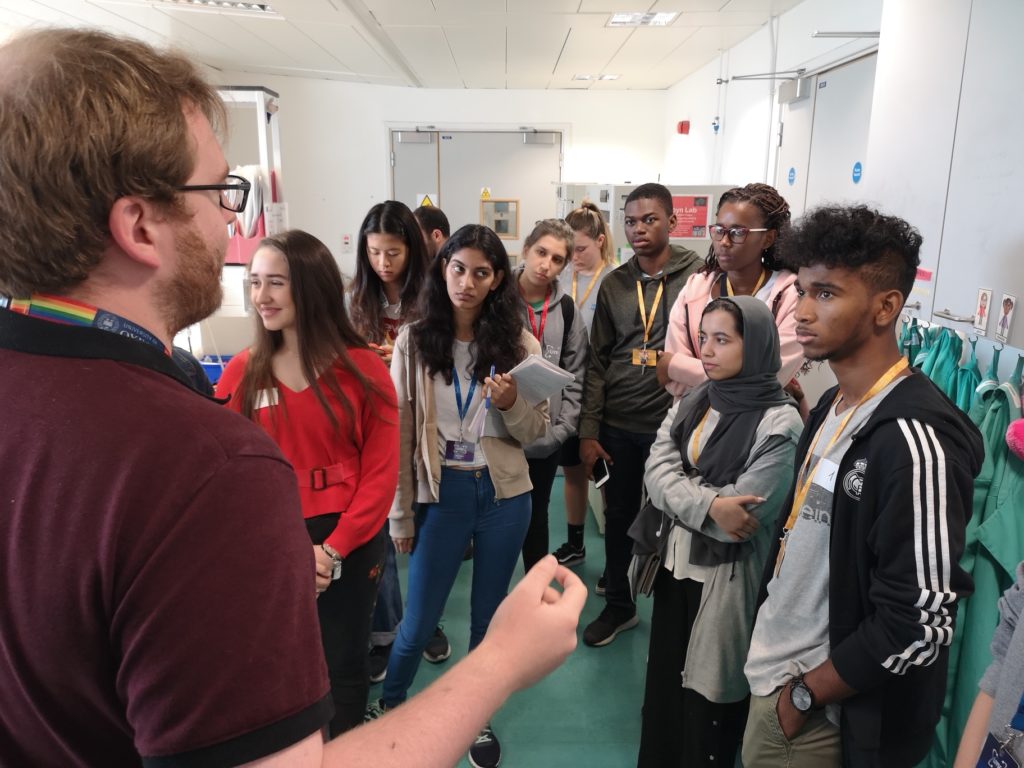
Around 50 international students interested in a career in medicine or science have visited Oxford BRC-funded research facilities.
Half the students, who are taking part in the London International Youth Science Forum (LIYSF), visited the John Radcliffe Hospital’s Neuroscience department, while the rest spent the day at the Oxford Centre for Diabetes, Endocrinology and Metabolism (OCDEM), based at the Churchill Hospital.

The LIYSF is a two-week residential event which attracts more than 500 of the world’s leading young scientists from around 75 countries.
The students visiting the John Radcliffe started by visiting the University of Oxford’s Nuffield Department of Clinical Neurosciences (NDCN), where they found out about the Breathe Oxford project, which is studying the impact breathlessness has on the brain.
They then visited a BRC-funded laboratory which investigates the neuropathological changes in Alzheimer’s disease and how this can be used to help develop new treatments, before the NDCN Neurometrology team explained how Parkinson’s disease can affect a person’s reaction times, and how researchers are working to identify biomarkers of the earliest stages of the disease, when new therapies are likely to be most effective.

The group of students who visited OCDEM began their day with a talk from Prof David Ray about the impact of time of day and sleep patterns on the metabolism. They then toured the Human Islet Isolation Laboratory, OCDEM’s Clinical Research Unit and the BRC Core Laboratory Unit.
Seventeen-year-old Emily was one of three students from Luxembourg who had won a national competition to attend LIYSF. She said: “I am interested in science and this is a good opportunity for us to really experience what researchers do.”
The LIYSF, which was founded in 1959, aims to “give a deeper insight into science and its applications for the benefit of all mankind and to develop a greater understanding between young people of all nations”.
It is held at Imperial College London and The Royal Geographical Society, with day visits to other leading UK research centres and Universities, including Oxford.